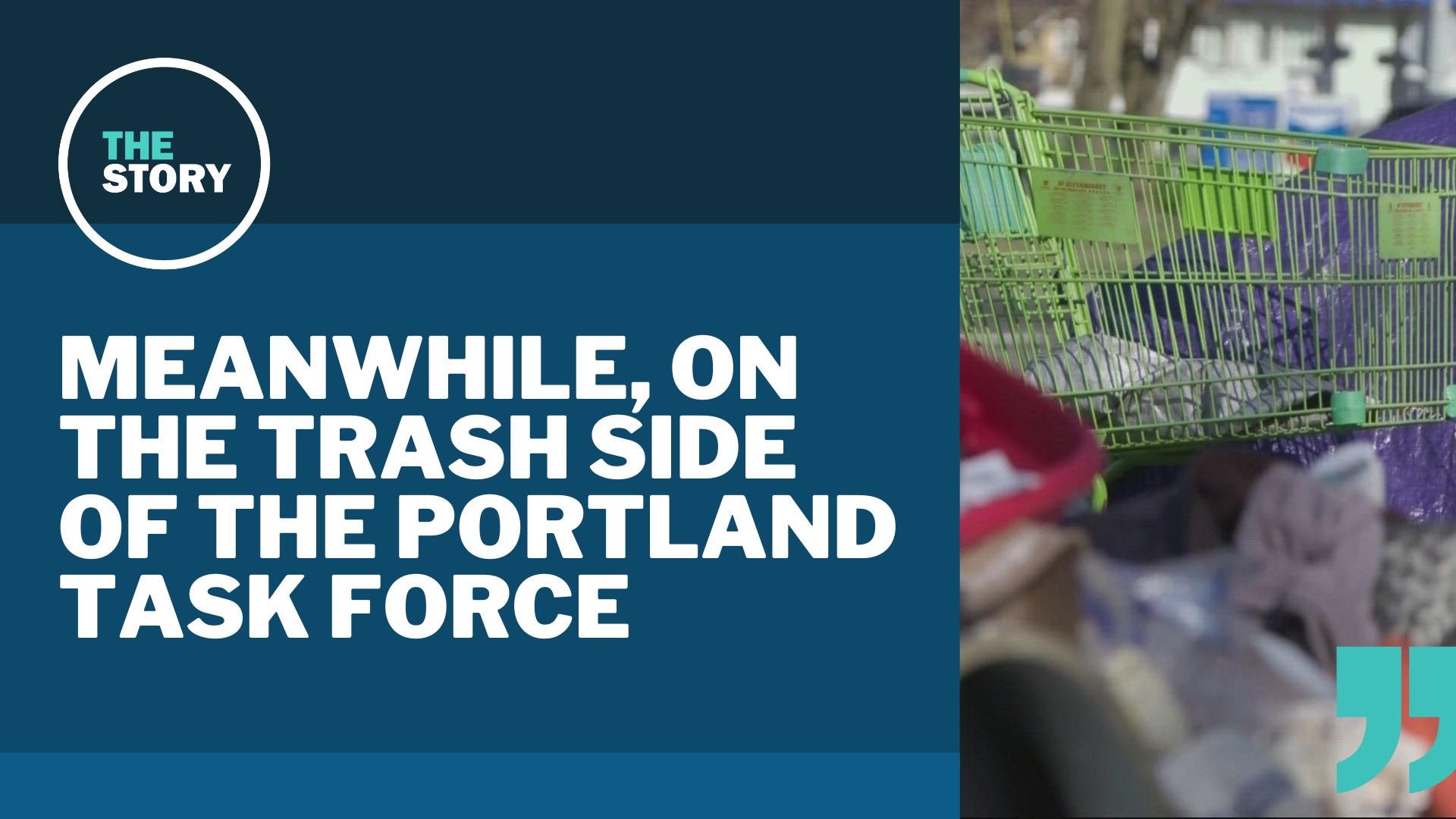PORTLAND, Ore. — Back in August, Oregon Gov. Tina Kotek launched a new task force aimed at coming up with ideas to accelerate Portland's recovery. The Portland Central City Task Force is made up of dozens of business and community leaders in Portland, with even more people attached to the subcommittees charged with tackling specific issues.
The task force has met three times over the last few months to discuss ideas. In just over a week, the group is set to deliver its recommendations at the Oregon Business Plan Summit.
For the most part, the process has been opaque — the media is not allowed to sit in on these sessions. But this week, we're getting a look inside some of those discussions with two members of the "Livable Neighborhoods Committee," which advises the task force. This group has been tasked with devising ways to clean up central city neighborhoods.
Frank Moscow is the founder of Adopt One Block, an organization that provides people with trash cleanup supplies and encourages them to keep their own neighborhoods clean.
Moscow said that the committee members have floated a number of good ideas, but he's worried that the root causes of some of Portland's problems aren't being tackled — particularly when it comes to trash.
"First of all, I think the jurisdictions need to own up to their responsibility — ODOT, PBOT, large landowners like Union Pacific Railroad — they have and own the most visible land, and they are consistently refusing to clean up and care for their land," Moscow said. "So that's item number one. Item number two is that the city of Portland, the county, we used to do things that worked, and for some odd reason, we've stopped doing them."
Moscow pointed to the transition from trash pickup every week to every two weeks, as well as a lack of enforcement on anti-dumping and graffiti laws.
"The other thing that we used to do is we used to do street sweeping in the city of Portland with over 12,000 blocks," Moscow said. "We have a grand total of one functioning street sweeper."
Right now, Moscow said, the city of Portland has things backwards.
"We've made it easy, free and without fear of penalty to do the wrong thing — and expensive and hard to access to do the right thing," Moscow said. "And one of my articles prior I've said that I could dump 20 bags of trash in Pioneer Square and drive off without fear of penalty, and I actually believe that to be true based upon the Metro statistics for over 2,000 illegal dumps and a grand total of one fine."
RELATED: Portland population and income loss, housing and crime woes centered in task force briefing
Ken Thrasher, former CEO of Fred Meyer, now runs the Northwest Community Conservancy, a nonprofit that works on improving livability in Portland's Pearl District. The group tries to connect homeless people with shelters, provides security in the area and runs a hotline to report people in crisis and get them help.
According to Thrasher, there are already a number of organizations in Portland's central city doing good work on the trash front — including Downtown Portland Clean & Safe, SOLVE and the neighborhood associations — and he's recommending that they get more support and investment.
Thrasher also said that with such a large committee and so many ideas coming out of it, keeping track of all the initiatives and following what they accomplish will be critical.
"You've got five committees ... getting all of those into a strategic plan that's based on action and prioritized in a way that the moneys that are available now can be spent wisely with some accountability and tracking of metrics, I think that's going to be critical as they look at moving it from the committee work to a final integrated implementation plan," Thrasher said.
Regardless, Thrasher is optimistic that it can be done.
"What would happen if we did nothing? It would be really ugly ... it really would," he said. "We'd have a lot of tents and homeless people in the Pearl, but because of what we're doing, it's working. I think the same thing applies to the city and the governor's task force on the central city: As long as we are being strategic with an implementation plan that you can't do everything at once, you've gotta prioritize this stuff and make sure you're taking on those things that you can get done quickly first and then phase into those that take a little more time and need a little more money and investment. And some things you're going to have to try and see if it works first, so those might be pilots, but I'm always optimistic."
Thrasher added that the whole plan will need strong leadership. But with an all-new city government starting next year, there could be a major learning curve when it comes to implementing all of the task force's ideas.

